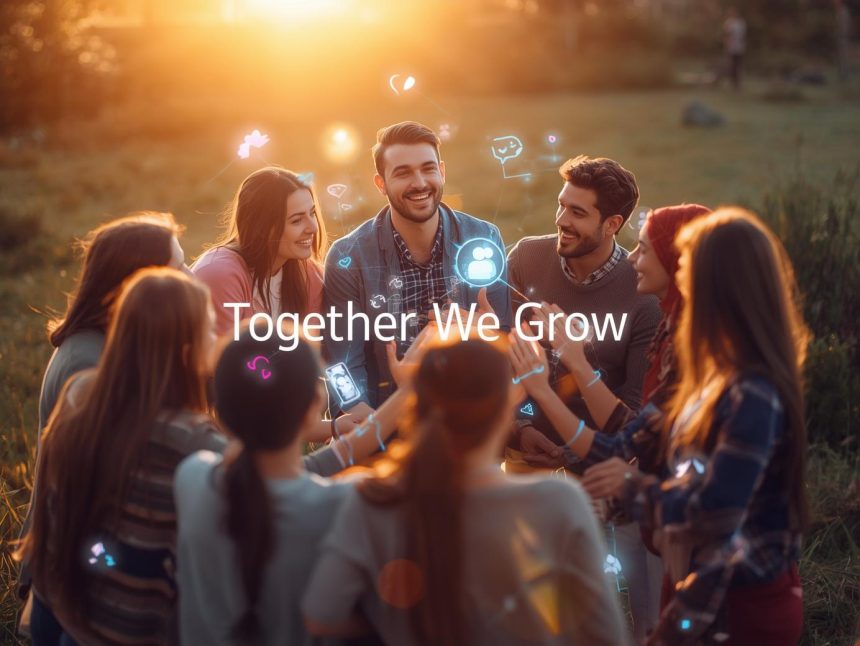In an era where consumers seek connection over transactions, community building has become a linchpin of digital marketing success. Beyond promoting products, brands in 2025 are cultivating loyal groups—engaged advocates who amplify reach, enhance loyalty, and shape brand narratives. This shift is more than a feel-good tactic; it’s a strategic driver. Here’s how community building is transforming digital marketing and why it’s critical for thriving in a competitive, skeptical digital world.
Why Communities Matter Now
The rise of community-centric marketing mirrors evolving consumer priorities. By 2025, 74% of people want to align with a brand’s purpose, not just its offerings (Salesforce, 2024). Digital platforms enable this—online forums and exclusive groups connect people worldwide (Pew Research Center, 2023). With ad fatigue rampant, communities cut through—81% of consumers trust peer recommendations over ads (Nielsen, 2023). For marketers, communities turn passive buyers into active champions.
The Power of Community in Marketing
Community building delivers measurable impact in 2025:
- Loyalty Boost: Engaged members stay—loyalty rises 30% with strong communities (HubSpot, 2024).
- Organic Amplification: Advocates share naturally, expanding reach (Forrester, 2024).
- Insight Source: Communities offer real-time feedback, sharpening strategies (Gartner, 2024).
- Trust Factor: Peer trust trumps ads—68% value community ties over campaigns (Salesforce, 2024).
Strategies to Build Thriving Communities
Effective community building requires purpose and engagement. Here are five strategies excelling in 2025:
- Exclusive Spaces
Create private groups—like a fitness brand’s “insider club”—to build belonging (HubSpot, 2024). - Member Empowerment
Let fans co-create—like a tech firm polling features—or highlight their stories (Forrester, 2024). - Purposeful Events
Host virtual challenges—like a “wellness week”—to unite around goals (Salesforce, 2024). - Engagement Rewards
Offer perks—like early access—for participation (Gartner, 2024). - Responsive Listening
Adapt based on input—like a food brand tweaking products per feedback (Pew Research Center, 2023).
Real-World Wins
Lululemon’s community events, led by ambassadors, drive sales through peer buzz (Lululemon, 2024). In 2025, a tech brand might build a “coder community” for innovation, or a lifestyle firm foster a “sustainability circle” sharing tips—proof communities fuel growth.
The Future of Community Marketing
AI could tailor community experiences, while Web3 might birth member-owned groups (Gartner, 2024). Consumers will push further—77% expect brands to enable connections by 2030 (Salesforce, 2024). Inauthenticity risks failure (Forrester, 2024).
Connection Is Currency
In 2025, community building is digital marketing’s core. Brands nurturing genuine tribes gain loyalty, reach, and resilience. It’s about growing with customers, not just selling to them. Your community is waiting—build it.
References
- Forrester. (2024). Community-driven marketing: Trends for 2025. https://www.forrester.com
- Gartner. (2024). The future of digital communities. https://www.gartner.com
- HubSpot. (2024). Building brand communities in 2025. https://www.hubspot.com
- Lululemon. (2024). Our community mission. https://www.lululemon.com
- Nielsen. (2023). Global trust in advertising report. https://www.nielsen.com
- Pew Research Center. (2023). Digital connectivity and consumer trends. https://www.pewresearch.org
- Salesforce. (2024). State of the connected customer: 2025 edition. https://www.salesforce.com















